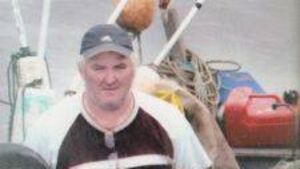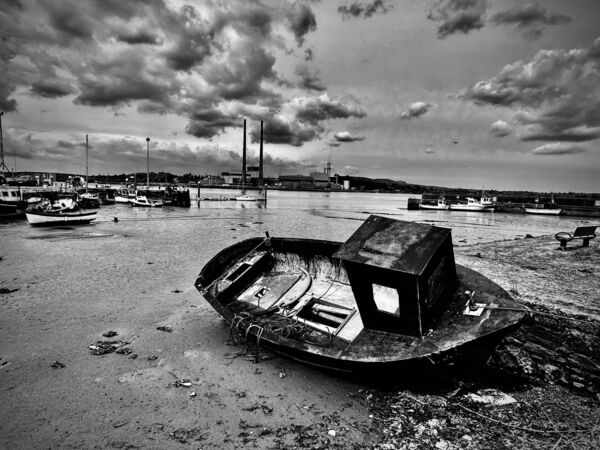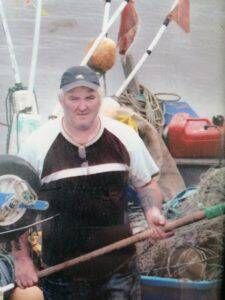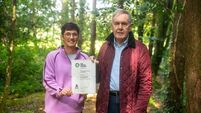'Traditional fishing in Waterford has been replaced by a vacuum'

Sean Doherty, Cheekpoint native and eel fisherman.
Centuries of tradition along the Waterford Estuary will be irretrievably lost unless measures such as the granting of fishing licences and the development of a new cultural heritage concept are not developed in the medium term.
Speaking to the Waterford News & Star, Cheekpoint native and eel fisherman Sean Doherty, who has been “fighting about this for years”, acknowledged the necessity of working with Inland Fisheries Ireland (IFI) to improve the lot of traditional fishermen.
“There’s no point in me pretending otherwise; it’s not as if I can pretend the IFI isn’t there and that I can just go off and do whatever suits me, that’s not the point of this at all,” he said.
“I’m part of a generation that was never away from the river when we were young, that grew up with traditional fishing in a way that just doesn’t apply to younger generations in 2021, unfortunately. But there’s a new CEO now with Inland Fisheries (Francis O’Donnell, appointed last September) and hopefully things may improve from our end of things.”
According to Mr Doherty, both before and during the window in which the IFI was established back in 2010, “the traditional fisheries in the river were all closed down”.
He explained: “We basically had two species in the summertime: we had salmon, eels and bass – the bass had previously been banned. And the thinking behind that, well, this is what we were told at the time, was to give a species to the anglers, so that they’ve had their own species so the fishermen agreed to that. But when the IFI came in, it soon became apparent to me that the policy was to close down the fisheries: there was no social impact studies or anything like that done to show what impact a decision was like that was going to have, which just made no sense to me.”

Mr Doherty added: “Just go back to last year when the Covid angling suspension was lifted, the then (IFI) CEO Ciaran Byrne came out and said it was great for anglers’ mental health and their well-being and that it was great to see them back on the river. But had they given the same emphasis to the traditional fishermen, that would have been welcome but unfortunately, they never did. As far as I’m concerned, there’s 10 years after being wasted during which the salmon fishing (to the traditional fishers) has been closed. Old, local knowledge tells us that salmon populations fluctuated greatly and recorded history from the old estates in England tells us that too…had they (the IFI) used the last 10 years to engage with people and had they decided to have another buy-out and bring the number of licences down significantly but that a base (of licence holders) would be left there, then to me, that would have suggested that (the IFI) wasn’t intent on killing us off but it seems fairly apparent to me that this appears to be a policy, which just doesn’t make sense to me. I’m just hoping now that with a new CEO in place that a different approach might taken and that we might be listened to a little more than we have been over the past 10 or more years.” Traditional fishing, in Sean’s view, forms part of his own “cultural identity” within the Estuary and that of generational fishing families along the River Suir’s catchment area.
“I can go back to the 1800s and to my Great Great Grandfather when it comes to fishing,” he said. “It’s a huge part of who I am and how my ancestors lived along the river. In my reading of things, it was never apparent under British law that the authorities’ intention at that time was to totally exterminate traditional fishing and the way of life that went with it. So what I’d hope can happen now with a new man in charge of IFI is that traditional fishermen will at least get as fair a hearing as anglers do.”

“There’s been no deep appreciation at board level within the IFI about the long-term impact of their decisions on the villages and communities along the Estuary. I’ll put it like this: be it Passage, Ballyhack, Arthurstown or Cheekpoint, you could down to any of them today and probably get drugs in any of them yet you cannot go out and catch a salmon or an eel. Now where’s the sense in that? The way the Irish authorities punish their own is hard to credit, really.” Sean Doherty added: “There’s a huge amount of our history in Cheekpoint and Passage that’s connected to fishing and it would be terrible it all of that history was thrown away and nothing done to save it. Our villages would be somewhat more limited when it comes to promoting them to tourists in comparison to, say, Ardmore or Dunmore East. Yet traditional fishing is part of the Estuary’s history, it’s part of our culture and we could surely do something with that, to have boats out on the river, to have visitors down the quays on a Saturday and see the men hauling out nets – and you’d be encouraging young lads in the area to learn skills, mend a net, make a knot, start an outboard engine, all of that.”
He continued: “Some of the best seamen in the world came out of Waterford Harbour and we’ve never really exploited that know-how and generations of knowledge in the best possible sense: and by that, I mean having a different policy when it comes to fishing on the Estuary and creating a tourism product out of it too…so if, say, 10 licences were granted and we’re going to link them to cultural heritage, education and tourism, wouldn’t that be a positive? Now the fisherman might end up being the lowest rung on the ladder in terms of what he’d make out of it but a local café would benefit for example, you could have an interpretive centre, walkways, information boards and so on, I think it would help to keep our identity and heritage alive.”
Sean Doherty concluded: “Traditional fishing, in so many ways, has been replaced by a vacuum…but there’s still something that can done about this. It’s so important that we keep our traditions alive.”






